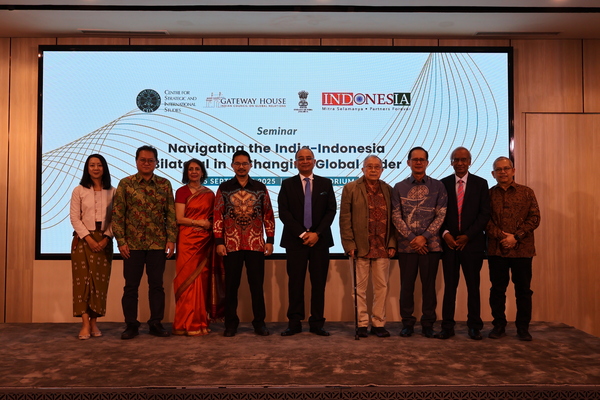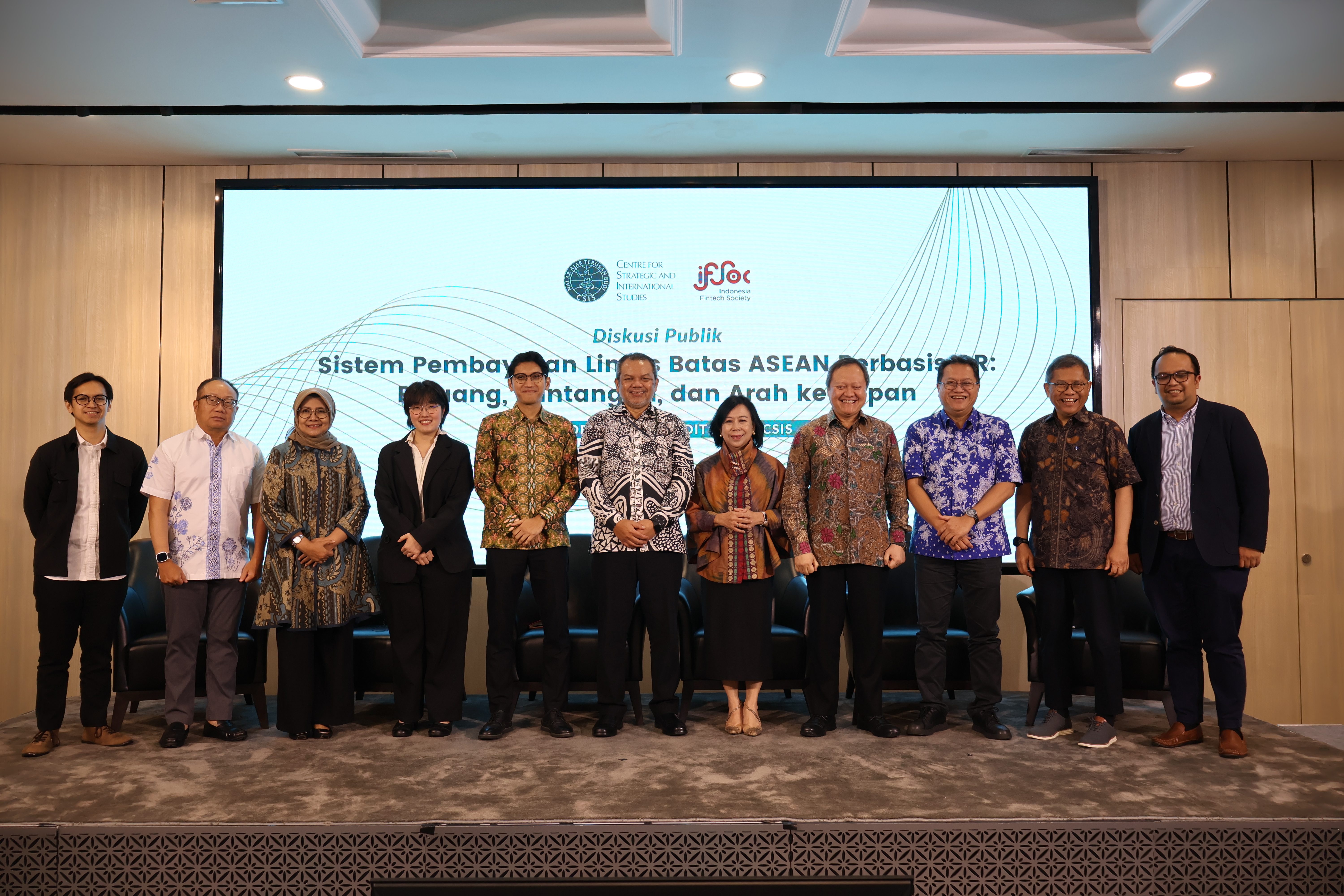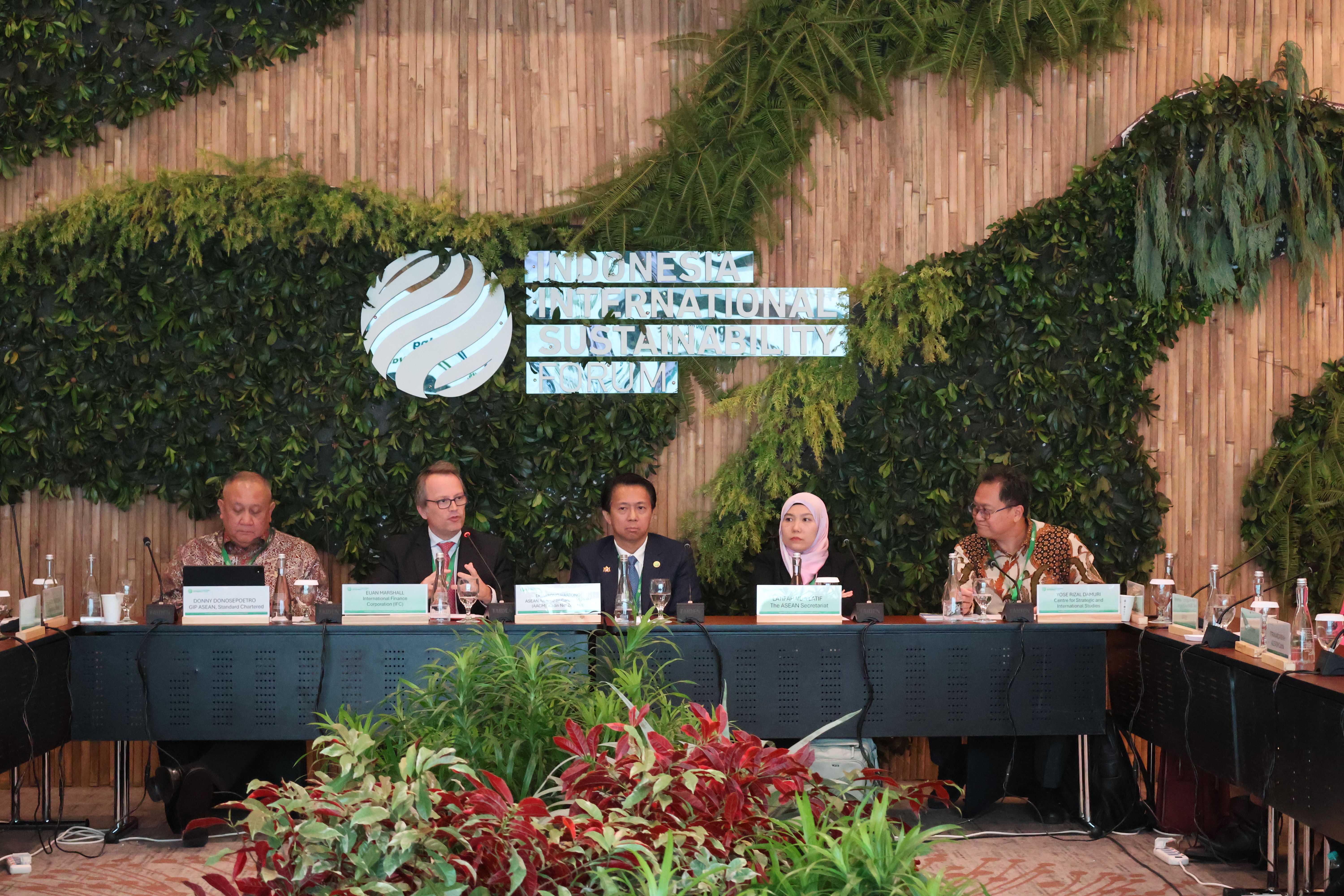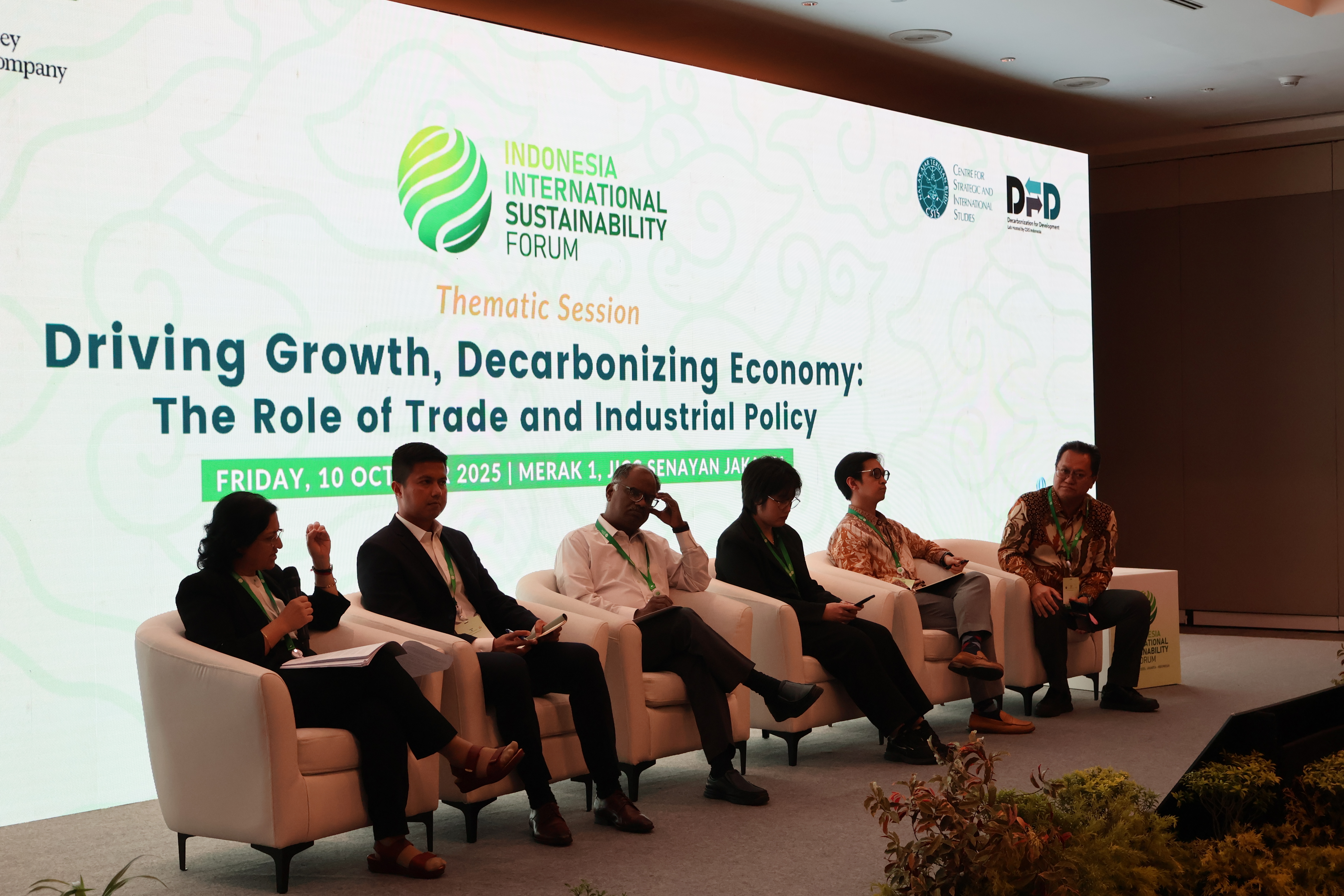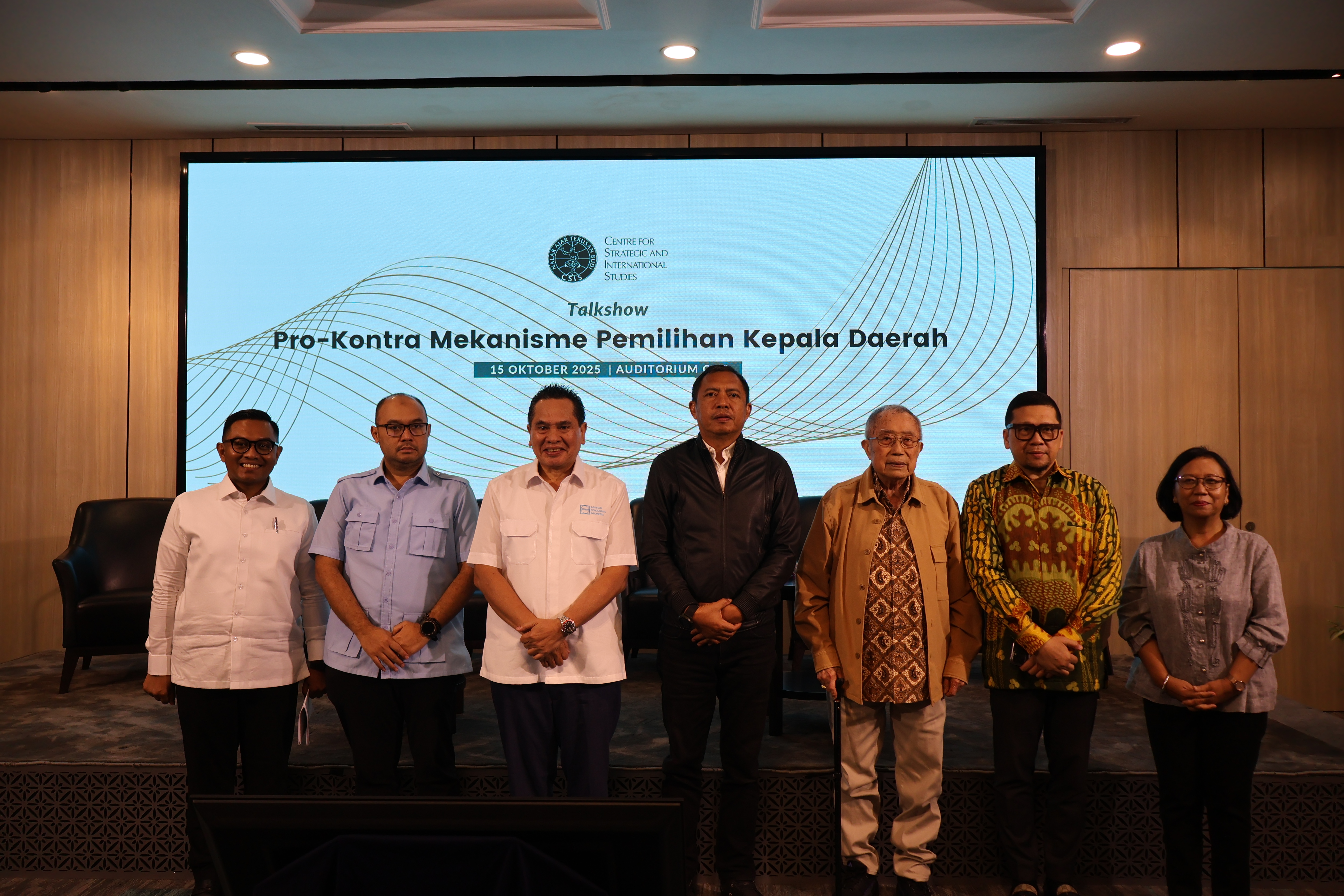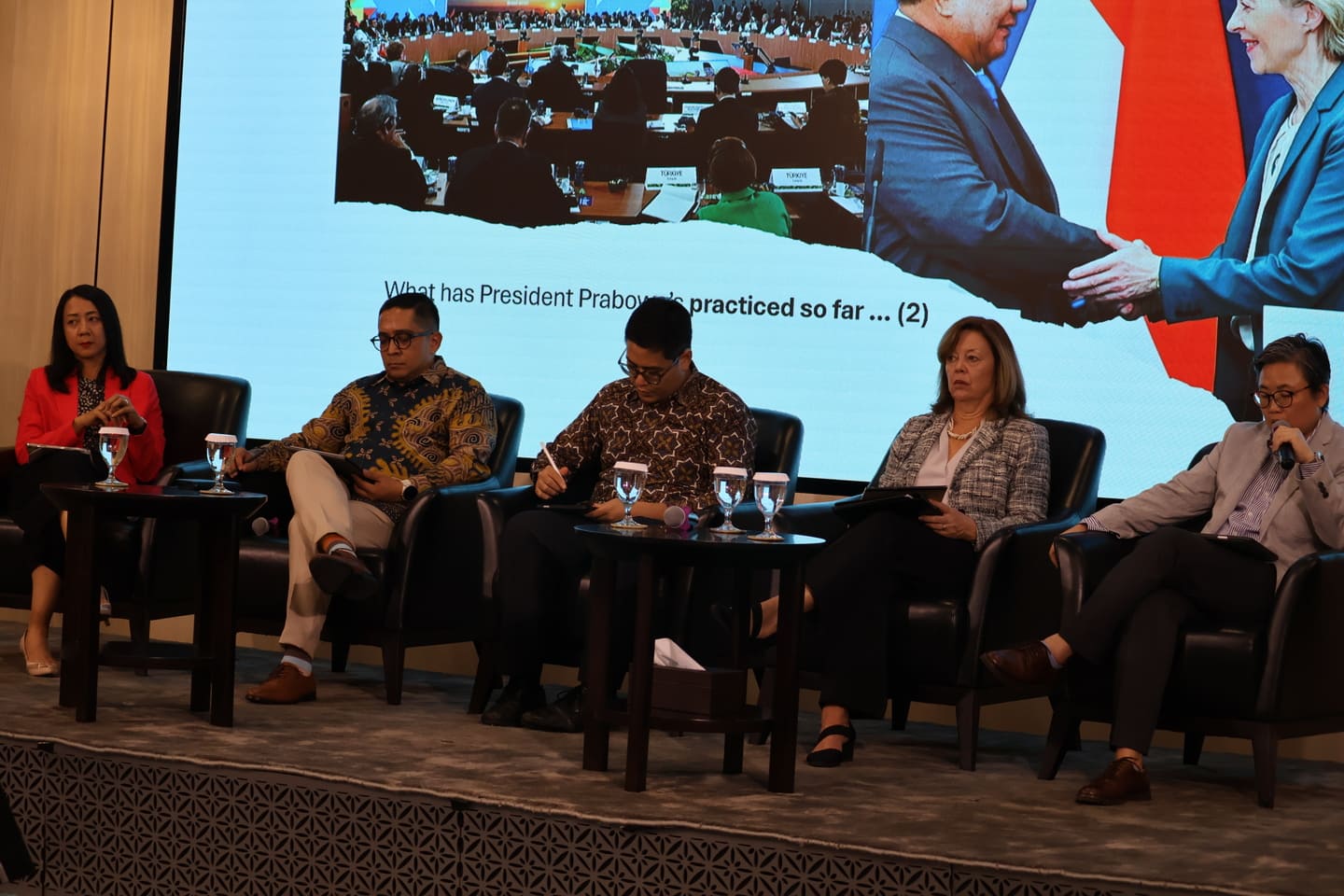
Jakarta, 5 November 2025 – Centre for Strategic and International Studies (CSIS) Indonesia has successfully hosted “Prabowo's First Year as President: Recalibrating Indonesia's Foreign Policy?” at the CSIS Auditorium.
The seminar discussed Prabowo's foreign policy direction during his first year of presidency. With each of Indonesia’s presidents having their own approach in foreign policy, many factors such as ASEAN and Indonesia’s relations with China and the US shape Prabowo’s foreign policy direction.
Key highlights:
Yose Rizal Damuri, Executive Director, CSIS, opened the session by stating that with the shift in world order, Prabowo’s approach to foreign policy should be carefully observed as he centralized the foreign policy and diversified partners and deals, though the question of the effectiveness and the coherence of his foreign policy still remains. Foreign policy is also used to promote and support his campaign programs such as free school lunch.
Lina Alexandra, Head of Department of International Relations, CSIS Indonesia, highlighted Prabowo’s foreign policy has been largely guided by strategic instincts, but moving beyond instinct toward a more deliberate, long-term approach is now essential. She advised that foreign policy making must be accessible, structured, and free from arbitrary restriction and not confined to the circle of advisers. Moving forward, the involvement of professional and technocratic foreign policy making (the role of Foreign Affairs Ministry) and democratic oversight (the role of the First Commissioner of the House of Representatives) is necessary as foreign policy cannot be handled by a single person.
Philips J. Vermonte, Dean of Faculty of Social Science, Universitas Islam International Indonesia (FOSS UIII) and Senior Fellow, CSIS, highlighted that foreign policy participation should be more inclusive. He also underlined that ASEAN must remain at the forefront of Indonesia's foreign policy, noting that the upcoming election of ASEAN’s Secretary-General next year offers an opportunity to reinvigorate Indonesia’s leadership role in the regional organization.
Ann Marie Murphy, Professor, School of Diplomacy and International Relations, Seton Hall University, emphasized Southeast Asia’s position amidst the U.S.-China rivalry. As the U.S.’ foreign policy under Trump is pragmatic and ideological, the security strategy is aligned with the American First agenda. Gaza’s effort towards peace is seen as a way to gain the favor of the U.S., especially Trump. With the volatile international environment, Indonesia’s foreign policy is reactive.
Ardhitya Eduard Yeremia Lalisang, Head of Undergraduate Program, Department of International Relations, Universitas Indonesia, reflected on the lack of roles from the Ministry of Foreign Affairs. Though Prabowo knows that there must be a continuity on Indonesia-China’s relation, Prabowo has yet to seal certainty in China’s project. Compared to Joko Widodo’s presidency when he sealed a mega project with China not long after he held office, with quick follow up, Prabowo’s approach to China still remains to be seen.
Explore the full discussion on YouTube CSIS Indonesia.

